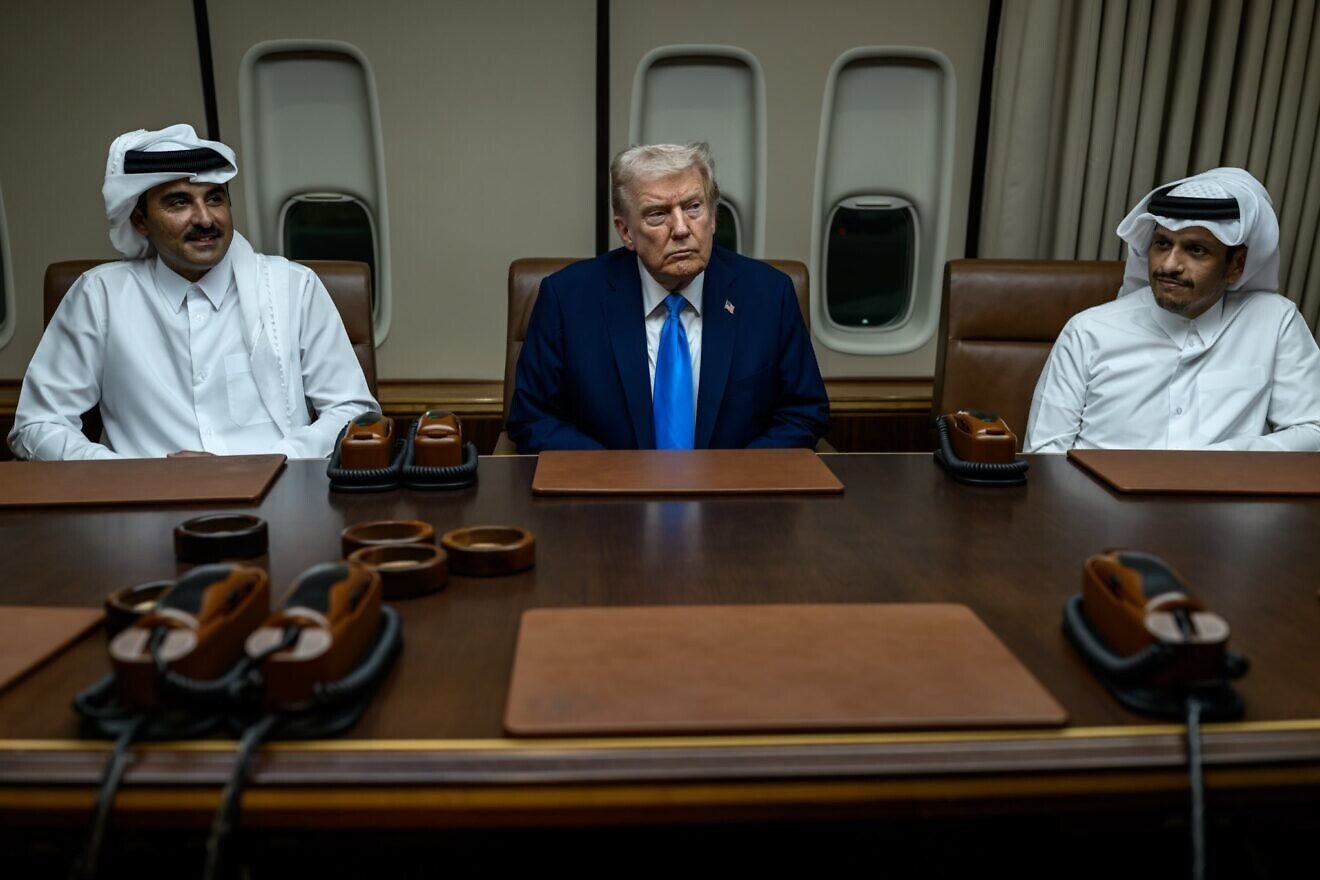Trump's Gaza plan financing in doubt as Gulf states push back
Qatar wants guarantees that Israel will uphold its side of the peace deal before investing in reconstruction, Bloomberg learned. The UAE demands Hamas's full disarmament and exclusion from future governance in Gaza, plus a PA overhaul, before committing funds.
Erez Linn
Israel Hayom
Oct 26, 2025

Trump signaled this month that "Arab and Muslim nations" would pledge "tremendous amounts of money" for Gaza's reconstruction, Bloomberg reported. This appeared to settle the $70 billion estimate from the United Nations for the territory's rebuilding. However, convincing Qatar, Saudi Arabia, and the UAE to provide funds is challenging, Bloomberg noted, as all three have reservations despite endorsing the peace plan. "It's easy to pledge funding, but realizing it... is something else," stated Ibrahim Saif, a former Jordanian minister, according to Bloomberg.
Egypt will host a reconstruction conference next month, but Bloomberg reports postwar concerns like Israeli compliance and Hamas' disarmament are currently prioritized. Saudi Arabia, which pushed for a ceasefire, faces financial constraints from lower oil prices that have impacted Crown Prince Mohammed bin Salman's domestic projects. The kingdom has also stopped giving grants. Riyadh "is allergic to writing blank checks," explained Ali Shihabi to Bloomberg, citing past corruption. Saudi Arabia is expected to press Qatar and the UAE for the bulk of the funding.
The UAE is hesitant without "political clarity" and "a longer term view" toward a Palestinian state, Bloomberg learned from adviser Anwar Gargash. A senior UAE official told Bloomberg that Abu Dhabi demands Hamas' full disarmament, its exclusion from governing Gaza, and a Palestinian Authority overhaul. Bloomberg also found that Qatar, a key mediator, wants to ensure Israel implements its side of the deal before committing money.
While Arab states accept Hamas' exclusion from Gaza's temporary leadership, a senior Arab official told Bloomberg that totally removing the group from political life is unrealistic, suggesting a reformed entity might have a future role. This involvement remains a red line for Israel and the US, given the October 7, 2023 attack. The terrorist group, Bloomberg noted, still controls nearly half of Gaza, and a preliminary US plan to divide the territory for reconstruction is being discussed. The Saudi, Qatari, and UAE governments did not provide comment to Bloomberg.
Trump will likely lean on Qatar for significant funding, according to Firas Maksad of Eurasia Group, Bloomberg reported. Although the US gave Doha a security guarantee, Qatar will seek trade-offs. "Qatar wants influence and a say in Gaza," Maksad told Bloomberg, adding, "That's going to be problematic for Israel." Gulf states broadly "all agree they won't put money into Gaza unless they are first sure this won't happen again," Yasmine Farouk of the International Crisis Group explained to Bloomberg. This "entails getting guarantees" from both Hamas and Israel.
Egypt, Bloomberg reports, is eager for its private-sector firms to lead the internationally funded development, including energy sectors. Saif, the former Jordanian minister, told Bloomberg he understood the Gulf's reluctance, citing the threat of renewed hostilities and past experiences. The fundamental scope of the rebuilding effort remains an unanswered question. "Is it just rebuilding what was damaged or is there a comprehensive plan...?" Saif queried, as cited by Bloomberg.
No comments:
Post a Comment